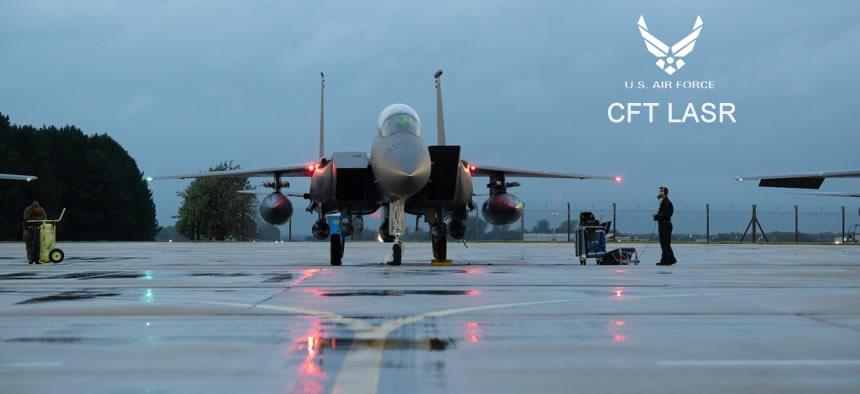
CFT LASR in a Nutshell:
Item |
Details |
|---|---|
| Agency: | Air Force – Air Force Materiel Command – Air Force Sustainment Center |
| Solicitation Number: | FA810824RB001 |
| NAICS Code: |
336411
Aircraft Manufacturing (Size Standard: 1500 Employees)
|
| Status: | Post RFP |
| Important Dates: |
|
| Contract Period: | 5 year(s) base plus 1 x 5 year(s) option(s) |
| Type of Contract: | Multiple Award, FFP, Cost Reimbursement, IDIQ, Time and Materials |
| Number of Awards: |
20
|
| Maximum Contract Ceiling Value: | $7.009 Billion |
| Set-Aside: | Full and Open / Unrestricted Partial Small Bus Set-Aside |
| GDIC Services: | Capture Management, Full Proposal Support, Proposal Review |
Solicitation Resources:
| Item | Link |
|---|---|
| Final RFP on Sam.gov (Jun 24, 2024) | Page Link |
| 3 Sets of Q&As (Apr-Jun 2024) | Zip File Link |
| Pre-Sol Conference Slides (Mar 2024) | Document Link |
| CFT LASR Draft RFP (Feb 2024) | Zip File Link |
GDIC Related Content:
| Date | Resource Name |
|---|---|
| GDIC Webinar (July 2024) |
Air Force CFT: How to Prepare your Proposal and Win |
| GDIC Article |
The 2023 CFT Solicitation: A Major Opportunity for Contractors |
| GDIC Case Study |
$6.4B Combat Air Force Air Support IDIQ MAC |
| GDIC Article |
First Step Before Bidding on Government Contracts |
| Proposal Support |
Color Team Reviews |
| Proposal Support |
Price To Win |
CFT LASR Proposal Submission
How can GDIC Help?
The US Air Force is a highly dynamic military establishment that constantly seeking products and services from qualified contractors to fulfill its missions. One of the areas the AF is active in acquiring services is staffing. As a consulting firm that specializes in helping companies prepare winning proposals for government contracts, GDIC can provide a wide range of services to help contractors prepare their proposals for the Air Force solicitations, including CFT LASR. We provide services such as capture management, proposal writing, proposal management, and proposal review. GDIC can also provide training and support to help contractor proposal teams understand the technical and administrative requirements outlined in the solicitations and can provide guidance on how to structure the proposal to maximize its chances of success.
Our business development and proposal professionals have several decades of experience and expertise in proposals and contracts for the government. By working with GDIC, offerors can increase their chances of winning contracts such as the CFT LASR and position themselves for long-term success in the federal marketplace.
